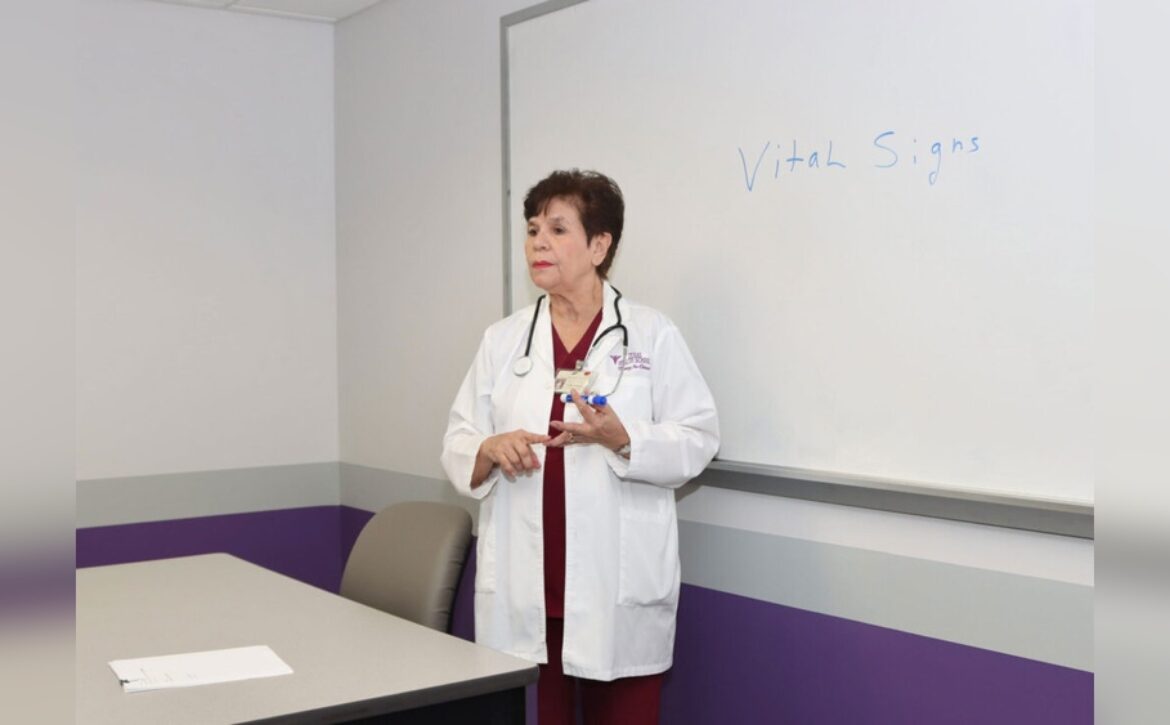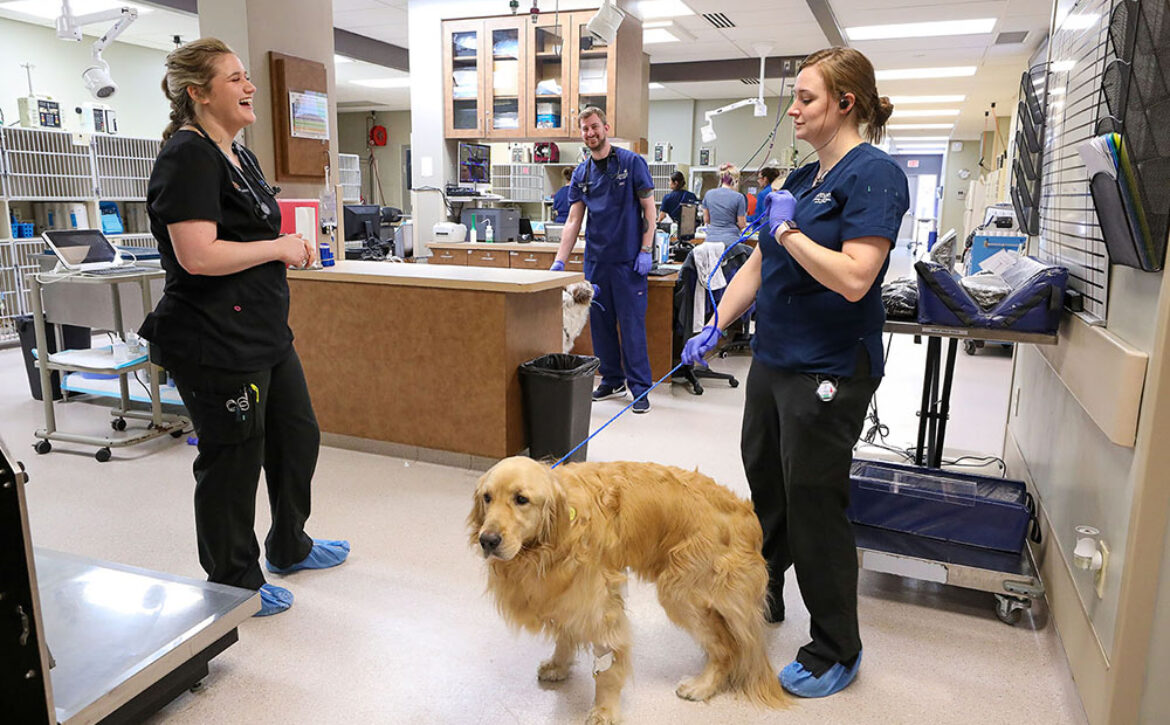
How to Become a Diploma in Healthcare Support: Step-by-Step Guide
Are you passionate about making a difference in people’s lives? Do you dream of a career where your compassion and skills create real impact?
Becoming a diploma holder in healthcare support might be the perfect path for you. This role is essential in ensuring patients receive the care and attention they deserve, and it can be your gateway to a fulfilling career in the healthcare sector.
Imagine waking up each day knowing you’re an integral part of a team that helps improve health and well-being. You’ll discover the steps to earn your diploma in healthcare support, opening doors to numerous opportunities. We’ll guide you through the process, from understanding the necessary qualifications to tips on how to excel in your studies. Stay with us, and you’ll learn how to transform your passion into a rewarding career. The knowledge and insights you’ll gain here could be the key to unlocking your potential in the healthcare field. Ready to take the first step? Let’s dive in.
Career Opportunities
Embarking on a career with a Diploma in Healthcare Support opens many doors. Graduates can explore a wide array of roles within the healthcare industry. This qualification provides a solid foundation for those eager to work in supportive healthcare roles.
The healthcare sector is constantly growing and evolving. With this diploma, you can enter a field full of possibilities and make a real difference in people’s lives.
Hospital Support Staff
Hospitals are always in need of skilled support staff. With your diploma, you can work alongside doctors and nurses. Your role will involve assisting with patient care and administrative tasks. This position allows you to be an integral part of the healthcare team.
Home Care Assistant
Home care services are on the rise. As a home care assistant, you provide care to patients in their homes. This role is rewarding, offering personalized support to individuals. You will help with daily activities and ensure their comfort and well-being.
Nursing Home Support
Nursing homes require dedicated support staff. Here, you can assist the elderly with their daily needs. Your diploma equips you to provide compassionate and effective care. This role is vital in enhancing the quality of life for residents.
Community Health Worker
Community health workers play a key role in public health. They educate and support community members on health topics. With your diploma, you can work in community settings, promoting healthy lifestyles. This role involves outreach and building strong community connections.
Rehabilitation Support Assistant
Rehabilitation centers offer another career path. Here, you assist patients recovering from injuries or surgeries. Your support helps them regain independence and improve their quality of life. This position offers a meaningful way to contribute to patient recovery.
Educational Requirements
Embarking on a career in healthcare support begins with understanding the educational requirements. These requirements ensure you have the necessary knowledge and skills. A structured educational path lays the foundation for success in this field.
High School Diploma
Start with a high school diploma or equivalent. This is the first step. It provides essential skills in communication and problem-solving. Focus on biology and health-related subjects. They are crucial for your future studies.
Relevant Courses
Enroll in courses related to healthcare support. Anatomy and physiology offer a great start. They help you understand the human body better. Basic math and computer skills are also important. They enhance your ability to manage data effectively.
Consider courses in first aid and CPR. They provide practical skills for emergencies. Learning medical terminology is beneficial too. It aids in understanding healthcare documentation.
Certification Process
Embarking on the path to becoming a certified professional in Healthcare Support is a rewarding journey. The certification process equips you with the necessary skills and knowledge to excel in this critical field. Understanding the steps involved can make your journey smoother and more focused. Let’s break down the process, starting with accredited programs and application procedures.
Accredited Programs
Choosing the right program is crucial. You want a program that is recognized and respected in the healthcare industry. Accredited programs offer a curriculum that meets industry standards and prepares you effectively for your career.
Look for programs accredited by reputable organizations, such as the National Association for Healthcare Support. Accreditation ensures that the education you receive is of high quality and that employers will value your certification.
Consider factors like course content, instructor expertise, and student support services. These elements can significantly impact your learning experience and success in the field.
Application Procedures
Once you’ve selected an accredited program, the next step is applying. Make sure you have all the necessary documents ready. Typically, you’ll need to submit proof of previous education, a personal statement, and sometimes recommendation letters.
Pay attention to application deadlines. Missing these can delay your certification process. Organizing your documents ahead of time can alleviate last-minute stress and improve your chances of acceptance.
Reflect on your personal experiences in healthcare. Sharing these in your application can demonstrate your passion and dedication. It may also set you apart from other applicants.
Are you ready to take these steps and advance your career in healthcare support? The certification process is your gateway to making a meaningful impact. Consider each aspect carefully and take action towards your goal. Your future in healthcare awaits!
Practical Experience
Practical experience is crucial in your journey to becoming a diploma holder in healthcare support. It bridges the gap between theoretical knowledge and real-world application, offering you hands-on skills that textbooks can’t teach. Embrace opportunities that allow you to step into the world of healthcare, where you can make a difference while learning.
Internship Options
Internships are a golden ticket to gaining firsthand experience in healthcare settings. Many hospitals and clinics offer structured programs where you can work alongside professionals, absorbing their expertise and learning through observation and participation. Imagine being part of a team that responds to emergencies, manages patient care, or even conducts routine health assessments.
Consider reaching out to local healthcare facilities to inquire about internship opportunities. Make a list of places that align with your career goals. You might find that some institutions even offer paid internships, giving you the chance to earn while you learn. Is there a hospital or clinic near you that could be the perfect starting point for your career?
Volunteering In Healthcare
Volunteering can be a powerful way to gain practical experience while contributing to your community. It’s often more flexible than internships and can offer diverse experiences, from assisting with patient transport to supporting administrative tasks. You’ll find that volunteering helps you build a network of contacts in the healthcare industry.
Look for opportunities at community health fairs, elder care facilities, or non-profit organizations dedicated to healthcare services. Volunteering not only enriches your resume but also your life. You might meet people who inspire your career path or discover areas of healthcare you hadn’t considered before. Which volunteering role could be your stepping stone to a rewarding healthcare career?
Skill Development
Skill development is crucial for anyone pursuing a Diploma in Healthcare Support. This journey equips you with the necessary skills to excel in the healthcare field. By focusing on specific skills, you enhance your ability to provide quality care. Let’s explore two key areas of skill development: communication skills and technical proficiency.
Communication Skills
Effective communication is vital in healthcare settings. It ensures clear understanding between caregivers and patients. You must learn to listen actively. This helps in understanding patient needs and concerns. Clear verbal skills are equally important. They aid in conveying instructions and information accurately. Written communication also plays a role. Proper documentation ensures accurate patient records. Practicing these skills regularly will boost your confidence in real-life scenarios.
Technical Proficiency
Technical skills are essential for healthcare support professionals. You need to handle medical equipment with ease. Familiarize yourself with common tools used in healthcare. This includes devices like blood pressure monitors and thermometers. Basic computer skills are also necessary. They help in managing patient records and scheduling. Continuous learning is key. Stay updated with the latest healthcare technologies. This ensures you provide the best support possible.
Job Search Strategies
Embarking on a career in healthcare support requires effective job search strategies. A diploma in this field opens many doors, but competition can be fierce. To stand out, you must present yourself as a qualified and enthusiastic candidate. This involves crafting a compelling resume and leveraging networking opportunities.
Resume Building
Your resume is your first impression. It must highlight your skills and experiences clearly. Start with your contact information at the top. Include a professional email and phone number. Follow with a concise objective statement. State your career goals and what you offer.
Next, list your educational background. Mention your diploma in healthcare support. Include the institution’s name and graduation date. Then, outline your work experience. Focus on relevant roles in healthcare settings. Use bullet points for readability. Highlight specific duties and achievements. Use action verbs like “assisted,” “coordinated,” or “managed.”
Don’t forget your skills section. Include both hard and soft skills. Mention skills like patient care, communication, and teamwork. Certifications can enhance your resume. List any relevant certifications you hold. Keep your resume to one page. Employers appreciate concise information.
Networking Tips
Networking is crucial for job seekers. Building connections can lead to opportunities. Start by joining professional groups. Look for healthcare support networks. Participate in online forums and discussions.
Attend industry events and workshops. These are great places to meet professionals. Engage in conversations and exchange contact information. Follow up with people you meet. Send a polite email thanking them for their time.
Use social media to expand your network. Platforms like LinkedIn can connect you with potential employers. Keep your profile updated with your latest achievements. Participate in relevant group discussions. Share insightful content related to healthcare support.
Volunteer in healthcare settings. Volunteering can help you gain experience and contacts. It shows your dedication to the field. Many jobs are found through word of mouth. Let people know you are job hunting.
Continuous Learning
Continuous learning is key in the dynamic field of healthcare support. As you pursue your diploma, staying updated with the latest developments and practices is crucial. Embracing continuous learning not only enhances your skills but also opens doors to new opportunities in your career.
Advanced Certifications
Advanced certifications can significantly boost your career in healthcare support. These certifications are designed to deepen your expertise and expand your skill set. Consider certifications in areas like phlebotomy, medical billing, or patient care.
These certifications can make you more marketable and increase your chances of advancement. They often involve practical training, ensuring that you gain real-world skills. Research available certification programs to find one that aligns with your career goals.
Professional Workshops
Professional workshops offer hands-on learning experiences that can be invaluable. They help you stay abreast of new techniques and technologies in healthcare support. Workshops are often led by industry experts who provide insights and guidance.
Attending these workshops can connect you with other professionals and expand your network. You might discover innovative practices that enhance patient care. Ask yourself: How can these workshops shape your approach to healthcare support?
Explore local and online workshop opportunities to continue your professional development. Set a goal to attend at least one workshop each year to keep your skills sharp and relevant.
Continuous learning is not just about acquiring knowledge; it’s about applying it to make a difference in your field. Embrace this journey and watch your career thrive!
Frequently Asked Questions
What Is A Diploma In Healthcare Support?
A Diploma in Healthcare Support is a qualification designed to prepare individuals for roles in healthcare settings. It equips students with essential skills and knowledge needed to assist healthcare professionals. The program typically covers patient care, communication, and basic clinical tasks, making graduates ready for various support roles in healthcare.
How Long Does The Diploma Take To Complete?
The duration of a Diploma in Healthcare Support usually ranges from one to two years. This can vary depending on the institution and the mode of study, such as full-time or part-time. Some programs offer flexible learning options to accommodate working students.
What Are The Career Opportunities After Graduation?
Graduates can pursue careers as healthcare assistants, support workers, or care coordinators in hospitals and clinics. They may also find opportunities in community healthcare settings or residential care facilities. The diploma provides a foundation for those interested in further studies or specialized healthcare roles.
Are There Any Prerequisites For Enrollment?
Most programs require a high school diploma or equivalent for enrollment. Some may also ask for background checks, especially if clinical placements are involved. It’s important to check specific requirements with the chosen institution to ensure eligibility.
Conclusion
Embarking on a healthcare support diploma journey can be rewarding. It opens doors to meaningful career opportunities. You gain essential skills for patient care and support. Every step builds your expertise and confidence. Focus on practical training and knowledge. These are crucial for success in healthcare roles.
Connect with instructors and peers. They provide valuable insights and encouragement. Stay committed to learning and growth. Your dedication will lead to a fulfilling career. Remember, helping others is at the heart of healthcare. Embrace the chance to make a difference.
Your path in healthcare support awaits.





